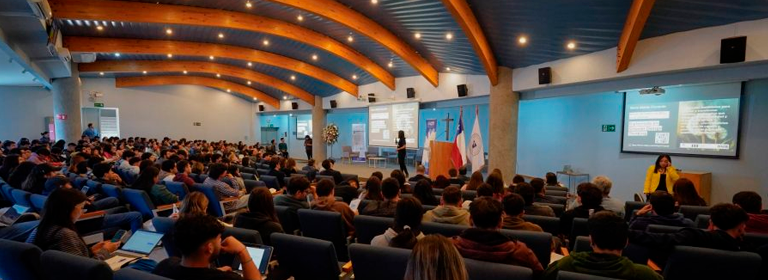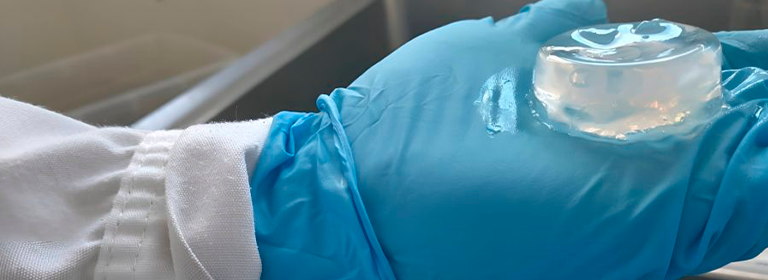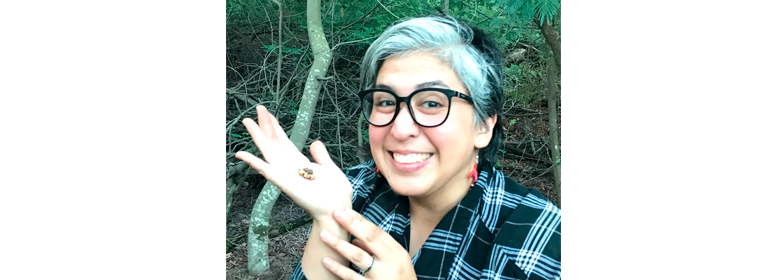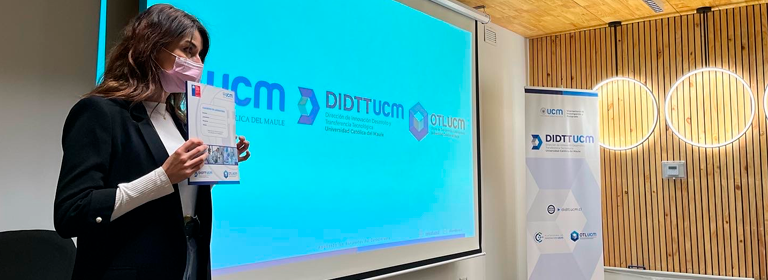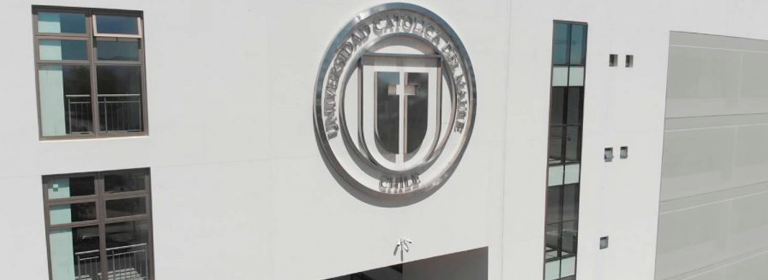The day brought together the crème de la crème in innovation at the San Miguel campus.
 The circular economy, as an approach designed to eliminate the traditional concept of “use and dispose”, was the cornerstone of the Innovation Day celebrated by the Universidad Católica del Maule.
The circular economy, as an approach designed to eliminate the traditional concept of “use and dispose”, was the cornerstone of the Innovation Day celebrated by the Universidad Católica del Maule.
The day, organized by UCM’s Directorate of Innovation, Development and Technology Transfer, included activities aimed at making visible and promoting a new paradigm of production and consumption.
“We have to show what we do and disseminate it as widely as possible. The idea is to generate applied knowledge to be able to face sectoral challenges and global challenges,” said the director of the DIDTT, Fabiola Loyola.
“The circular economy is a system that aims to use natural resources in a sustainable way -she added-, to give a product a second useful life and minimize waste. It is part of the 2030 Agenda of the United Nations, so we have to go that way”.
The event began with a seminar, which included presentations by the Seremi of the Environment, Daniela de la Jara, and the industrial civil engineer and expert in the “Circular Design Thinking” methodology, Claudia Brito. Academics Juan Figueroa, Diana Abril, Rodrigo Morales, Sara Cuadros, Ricardo Rebolledo and Antonio Cabrera also showed their work, ranging from biomimicry to industrial symbiosis.
“Innovation is lived intensely at the university, but on this day we are predisposed to contact with entrepreneurs and the outside world and somehow establish a formal link between research, science, technology and development,” stressed the Vice Rector for Research and Graduate Studies, Hernán Maureira.
In parallel to the seminar, UCM set up a fair with more than 20 stands in the alameda of the San Miguel campus, to showcase the crème de la crème in applied research. The technology-based companies “Southerly Food Technologies” and “Natpol”, created with support from the DIDTT, were present.
 “We are using too many conventional plastic or polymer systems that pollute the environment. If the same amount of plastic is generated, by 2050 we will find in the ocean the same amount of fish as conventional plastics. We seek to transform waste through biotechnological methods for the production of polymers based on bacteria, generating prototypes that can replace plastic bags”, said Rodrigo Morales, an academic from the campus and founder of Natpol.
“We are using too many conventional plastic or polymer systems that pollute the environment. If the same amount of plastic is generated, by 2050 we will find in the ocean the same amount of fish as conventional plastics. We seek to transform waste through biotechnological methods for the production of polymers based on bacteria, generating prototypes that can replace plastic bags”, said Rodrigo Morales, an academic from the campus and founder of Natpol.
Budget Law 2025
The Seremi of Science, Technology, Knowledge and Innovation, Hernán Astaburuaga, highlighted the 1.4% increase for his ministry in the Budget Law, which is currently being processed in Congress.
Among the novelties of the proposal, the Structural Financing Fund for R&D&I in universities and the establishment of an Emerging Technologies Division stand out.
“We are approaching the goal of 1% of GDP in innovation, which is what our OECD countries are spending today. In the Maule Region, resources have been allocated in research areas related to our work, such as agriculture and disaster prevention, and the budget being discussed in Parliament emphasizes these things, which are extremely relevant for this region”, emphasized the authority.

